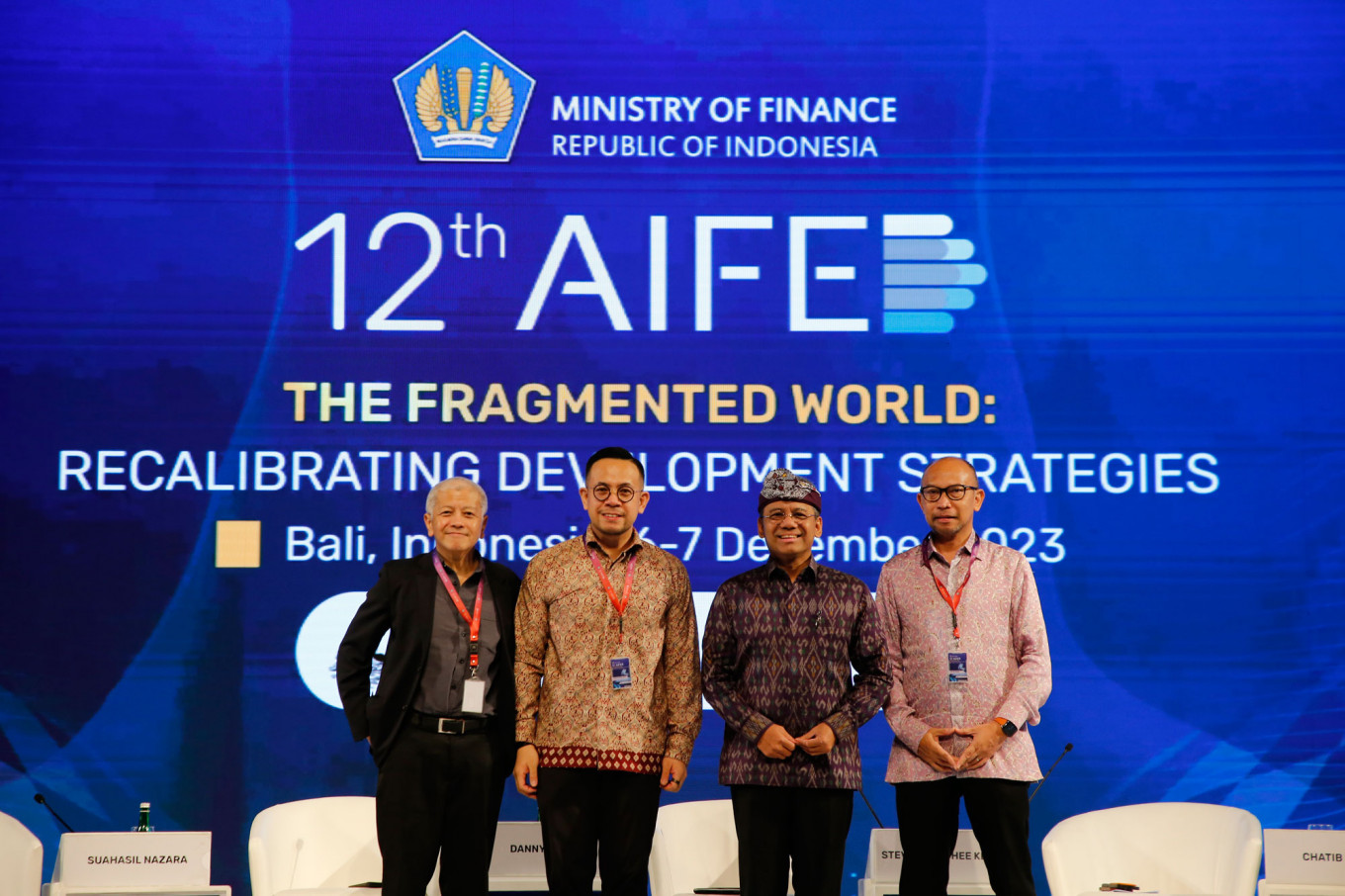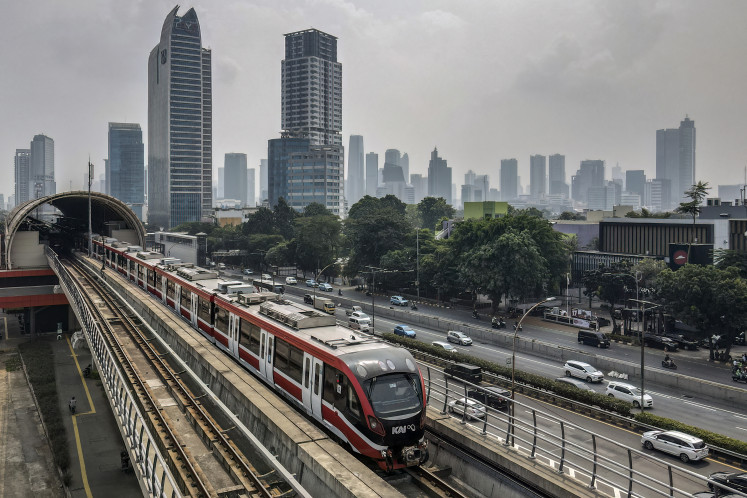Popular Reads
Top Results
Can't find what you're looking for?
View all search resultsPopular Reads
Top Results
Can't find what you're looking for?
View all search resultsFiscal policy, guardian of Indonesia’s economic stability amid the global pressure
A fiscal policy plays a significant role in safeguarding the national stability and maintaining economic growth.
Change text size
Gift Premium Articles
to Anyone
A
fiscal policy plays a significant role in safeguarding the national stability and maintaining economic growth. The Indonesian government, and more specifically the Finance Ministry, is committed to conducting structural reform to boost the country’s global competitive edge through infrastructure development, scaling up the human capital quality and strengthening institutions.
In several international economic collaboration forums, Indonesia has been active in setting the global agenda and solving global issues. Finance Minister Sri Mulyani pointed out that Indonesia was continuing its journey to becoming a high-income country. “This is not an easy and smooth journey because no one can promise that becoming a high-income country will be easy, and yet, this is something that we should continually advocate for with good institutional policy,” Sri Mulyani said.
In an opening of the 12th Annual International Forum on Development and Public Policy (AIFED) in Bali on Dec. 6-7, 2023, Sri Mulyani explained how Indonesia was able get out of the difficulties when hit by the COVID-19 pandemic.
She explained that the Indonesian economy was protected through the implementation of its fiscal and monetary policy. The Finance Ministry adopted two policies that it had not used before.
“We also witness that the world is highly fragmented with geopolitical tensions and technological war. It is clear that the global circumstances affect countries in terms of policy options and opportunities,” explained Sri Mulyani.
Global fragmentation provides a stimulus for strengthening nationalism and populism. It is confirmed that both put big pressure on the fiscal side. “Because eventually, fiscal policy, namely the budget, reflects the people’s aspirations, leading to sentiments of nationalism and populism being transmitted into the fiscal policy,” she added.
Sri Mulyani said many countries had adopted particular fiscal policies, which actually accommodated many things, such as a high deficit or high debts,” Sri Mulyani explained.
A country should be able to respond to all forms of crisis. Indonesia is one country that is able to respond to global shocks in a quick manner. “I am very pleased to see how the Fiscal Policy Agency at the Finance Ministry is really aware of global dynamics that need to be understood because these will persist, not fully understood, and at the same time, for those that are not over yet; this will create dynamics,” said Sri Mulyani.
Nationalism and global fragmentation
Meanwhile, Minister Sri Mulyani has her own insight into the development of the states’ policy globally. According to her, the rising nationalism in many countries can also have an adverse impact on the future of multilateralism.
The increased global fragmentation can lead to the reduction of trust between countries, especially in terms of priority in the global world. “This is understandable because every leader is chosen by his own people and that’s why they [the leaders] will protect their people first, and yet we seem to live in an era where the national and global interest cannot stand side by side,” said Sri Mulyani.
Certainly, the fragmentation poses a challenge for countries, including Indonesia, which plays a constructive role amid the global uncertain landscape due to the many changes amid the economic rotation among countries. For that reason, the Finance Ministry continues to carry out its tasks by adhering to the constitution and playing a constructive role by confirming that the world is built through peace, sovereignty and equity.
Stable performance
With regard to the global situation that is rife with challenges, including high interest rates resulting from the pandemic and climate change, Finance Minister Sri Mulyani said Indonesia had recorded a relatively stable performance. The Indonesian economy continues to grow at about 5 percent in the final quarter. “We continually focus on the most essential things in building the right and stronger foundations for Indonesia on its journey to becoming a high-income economy,” Sri Mulyani explained.
Sri Mulyani explained Indonesia’s success in being able to exit from the global challenges was by utilizing the fiscal instruments to manage the many shocks from both global and domestic pressures. Using fiscal policy wisely and having a relatively flexible response, Indonesia has succeeded in stabilizing the economy though, at the same time, should maintain the fiscal continuity.
Indonesia, in the wake of the pandemic, immediately conducted fiscal consolidation to benefit the economy. This has had an impact which can felt until today, as Indonesian fiscal policy is relatively strong, compared with that of other emerging and advanced countries. “And that is the treasure, or foundation, that needs to be maintained. Because today and in the future, we must continually anticipate shocks,” she said.
The Finance Ministry utilizes the fiscal instrument formulated based on prudent, just and sustainable principles in order to cope with the short-term and long-term challenges to achieve the goal of becoming a high-income country in the future.
Source: The Finance Ministry











